To provide the best experiences, we use technologies like cookies to store and/or access device information. Consenting to these technologies will allow us to process data such as browsing behaviour or unique IDs on this site. Not consenting or withdrawing consent, may adversely affect certain features and functions.
The technical storage or access is strictly necessary for the legitimate purpose of enabling the use of a specific service explicitly requested by the subscriber or user, or for the sole purpose of carrying out the transmission of a communication over an electronic communications network.
The technical storage or access is necessary for the legitimate purpose of storing preferences that are not requested by the subscriber or user.
The technical storage or access that is used exclusively for statistical purposes.
The technical storage or access that is used exclusively for anonymous statistical purposes. Without a subpoena, voluntary compliance on the part of your Internet Service Provider, or additional records from a third party, information stored or retrieved for this purpose alone cannot usually be used to identify you.
The technical storage or access is required to create user profiles to send advertising, or to track the user on a website or across several websites for similar marketing purposes.
 The feelings of isolation being experienced by employees is the biggest concern IT and cybersecurity teams have around home working, say almost one third (31 percent) of respondents to the latest Twitter poll run by Infosecurity Europe. The objective was to investigate views on the current threat landscape, as remote working remains the norm and ‘lockdown fatigue’ sets in. (more…)
The feelings of isolation being experienced by employees is the biggest concern IT and cybersecurity teams have around home working, say almost one third (31 percent) of respondents to the latest Twitter poll run by Infosecurity Europe. The objective was to investigate views on the current threat landscape, as remote working remains the norm and ‘lockdown fatigue’ sets in. (more…)








 Research released by
Research released by 
 Businesses using artificial intelligence (AI) solutions benefit from a happier and more efficient workforce, claims new research from
Businesses using artificial intelligence (AI) solutions benefit from a happier and more efficient workforce, claims new research from 

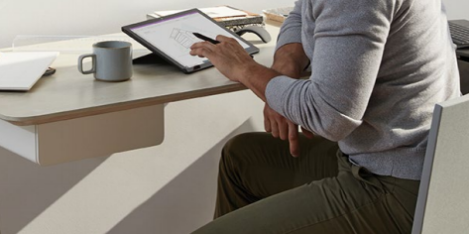
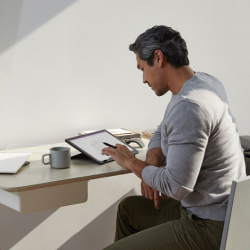 r workplace digital transformation and the urgent shift to remote working has seen the world experience two years of digital transformation in two months. New research from
r workplace digital transformation and the urgent shift to remote working has seen the world experience two years of digital transformation in two months. New research from 
 Over half (54 percent) of UK workers say they are more open to taking on a side hustle or freelance work since the Covid-19 pandemic, according to new research from
Over half (54 percent) of UK workers say they are more open to taking on a side hustle or freelance work since the Covid-19 pandemic, according to new research from 
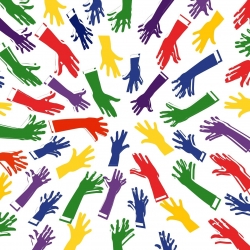 Two and a half million Brits are expected to be unemployed this year after the fall out of the pandemic. A concern for many has been how disabled people will fare with the aftermath. The unemployment rate for people with disabilities is more than twice those who are able bodied.
Two and a half million Brits are expected to be unemployed this year after the fall out of the pandemic. A concern for many has been how disabled people will fare with the aftermath. The unemployment rate for people with disabilities is more than twice those who are able bodied. 


 As Brits continue to spend an extensive amount of time at home, the importance of maintaining a good work-life balance has never been so vital. For their
As Brits continue to spend an extensive amount of time at home, the importance of maintaining a good work-life balance has never been so vital. For their 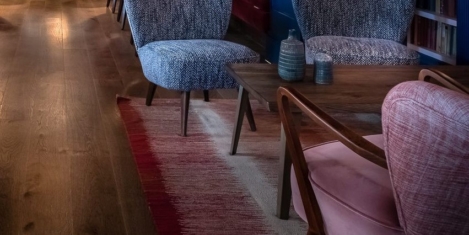
 One important concept the pandemic has taught us is that irrespective of where we work and whatever form the future workplace takes, our brand must remain strong. With much of our workforce now working from home, how do we bridge the gap between corporate and home life? As head offices re-form into social hangout hubs, and dining tables become makeshift desks, one message is loud and clear – connection with and delight in a brand is everything. From our internal talent and culture, and supply partnerships, to external customer persona, we must strengthen our culture both inside and out.
One important concept the pandemic has taught us is that irrespective of where we work and whatever form the future workplace takes, our brand must remain strong. With much of our workforce now working from home, how do we bridge the gap between corporate and home life? As head offices re-form into social hangout hubs, and dining tables become makeshift desks, one message is loud and clear – connection with and delight in a brand is everything. From our internal talent and culture, and supply partnerships, to external customer persona, we must strengthen our culture both inside and out. 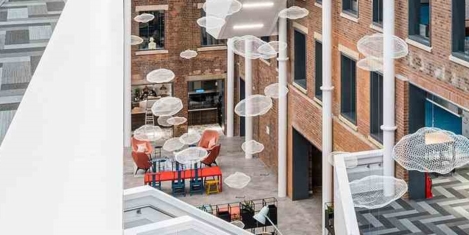
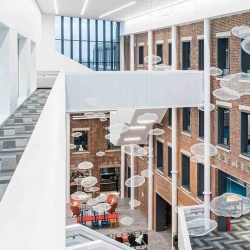 We’ve been talking to our clients a lot over the last eighteen months, informing and educating them about when upcoming green legislation might come into force and what that will mean for the construction industry. So, it’s with interest that we saw the UK government unveil its
We’ve been talking to our clients a lot over the last eighteen months, informing and educating them about when upcoming green legislation might come into force and what that will mean for the construction industry. So, it’s with interest that we saw the UK government unveil its 








February 19, 2021
A new mindset on climate change is emerging from the pandemic
by Aki Stamatis • Comment, Environment